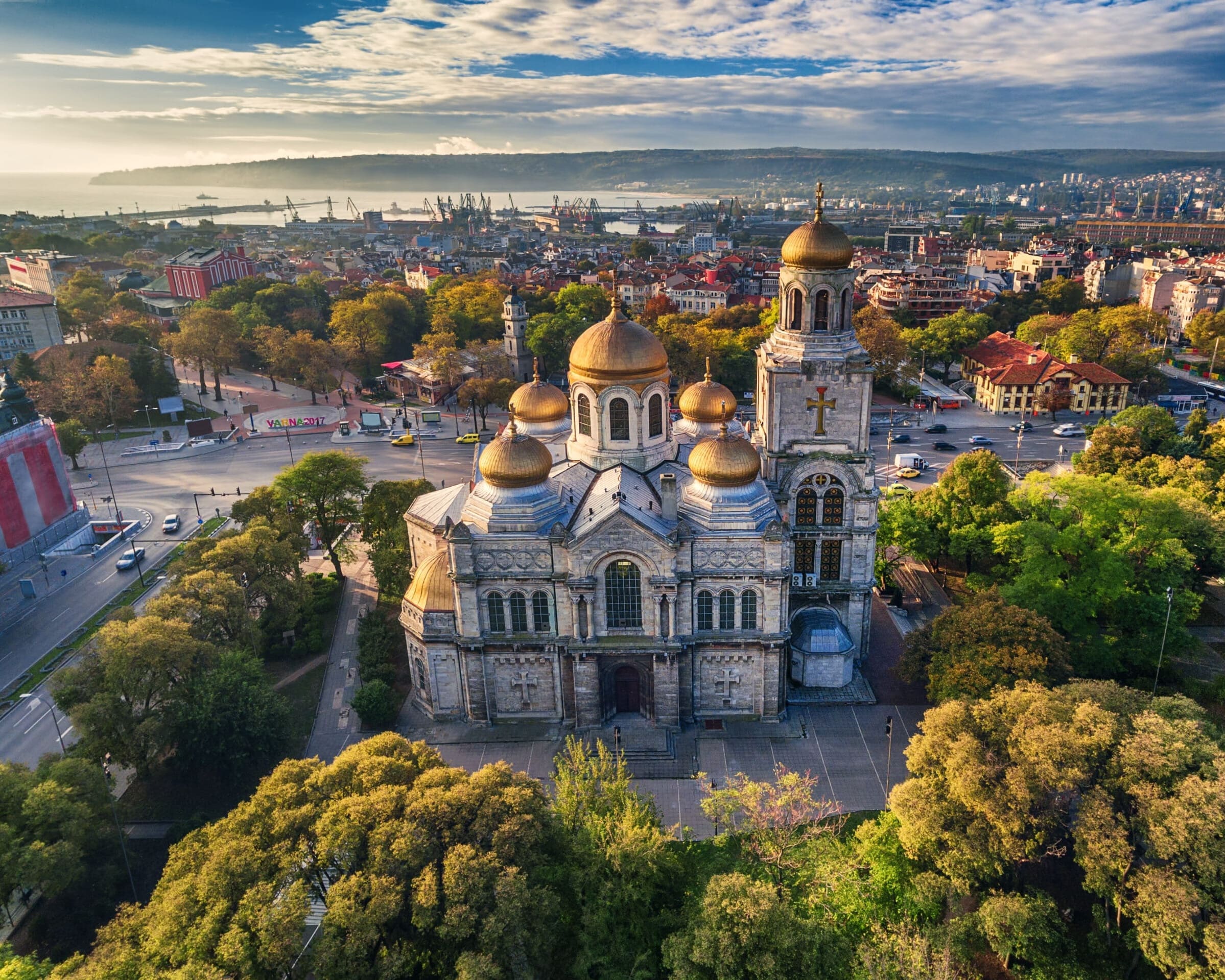Welcome to Bulgaria – the vibrant heart of Eastern Europe, where the streets echo with tales of ancient civilizations and the mountains whisper secrets of untold adventures.
Bulgaria, a land shrouded in mystery and drenched in history, awaits your footsteps. Here, every cobblestone has a story, every landscape is a canvas, and every moment is an invitation to delve into a world where tradition and modernity dance under the same moonlit sky.
Whether you’re drawn by the allure of sun-kissed beaches, the call of the wild in its lush forests and rugged mountains, or the charm of its quaint villages and bustling cities, Bulgaria offers an unparalleled journey of discovery.
With a spirit as rich as its cultural heritage, this is a place where every traveler finds a piece of themselves, amidst tales of glory, whispers of the past, and the vibrant pulse of the present.

The Best Time To Visit
The best time to visit Bulgaria largely depends on what you’re looking to do. If you’re aiming for a dive into its sunny beaches and want to enjoy the Black Sea coast, late spring through early fall (May to September) is ideal. The weather is warm, perfect for beach days and water activities, with July and August being the peak months for sun seekers.
For those enthralled by the charm of hiking, nature walks, and exploring the countryside, late spring (May to June) and early autumn (September to October) are fantastic. The temperatures are comfortable, not too hot, and the natural landscapes are at their most vibrant, either blooming in spring or painted with the golden hues of fall.
Winter sports enthusiasts should target December to March, when Bulgaria’s mountains are blanketed in snow, offering some of the best skiing and snowboarding in Europe at a fraction of the cost of the more famous Alpine destinations.
What To Know
In Bulgaria, the official language is Bulgarian. It’s a South Slavic language, rich in history and with its own Cyrillic alphabet, which visitors might find intriguing and unique.
Bulgarian is notable for its phonetic script, meaning you pronounce words as they are written, which can be quite helpful for travelers trying to pick up basic phrases. English is widely spoken, especially among the younger population and in tourist areas, making it relatively easy for English speakers to navigate, dine, and explore.
Additionally, Russian, German, and French can be somewhat common, particularly among older generations or in specific professional settings. Learning a few basic Bulgarian phrases, though, is not only appreciated by the locals but also a fun way to immerse yourself in the country’s culture!
In Bulgaria, the official currency is the Bulgarian Lev (BGN). The lev is subdivided into 100 stotinki.
For travelers, it’s important to note that while Bulgaria is a member of the European Union, it has not adopted the Euro as its currency, so you’ll need to use leva for cash transactions within the country.
Credit cards are widely accepted in cities and tourist areas, but it’s always wise to have some cash on hand, especially in smaller towns or for smaller purchases. ATMs are readily available, making it easy to withdraw leva as needed.
Bulgaria, like many destinations, is generally considered safe for travelers. However, as with any travel destination, it’s important to exercise common sense and stay aware of your surroundings, especially in crowded places and tourist hotspots, where pickpocketing and petty theft can occur.
Violent crime against tourists is rare, but it’s wise to stay informed about the areas you plan to visit and follow any travel advisories from your home country. Avoid walking alone at night in less-populated areas or places you are unfamiliar with, and keep valuables secure and out of sight.
Driving in Bulgaria can be challenging due to varying road conditions and driving styles, so be cautious if you choose to rent a car. When it comes to health, the tap water is generally safe to drink in cities and towns, but it’s a good idea to drink bottled water in rural areas.
Public transport in Bulgaria offers a variety of options, including buses, trains, and in some cities, trams and a metro system. Buses are the most extensive and often the most convenient way to travel both within cities and across the country. They connect major cities, towns, and even smaller villages, making them a reliable option for getting around.
The train network in Bulgaria provides scenic routes and connects key cities, though trains might not always be the fastest mode of transportation due to the age of some trains and tracks. However, traveling by train can offer a more relaxed and picturesque journey through the Bulgarian countryside.
Sofia, the capital, boasts a modern and efficient metro system that serves as a quick and affordable way to navigate the city, including to and from the airport. Trams and trolleybuses are also available in Sofia and other major cities, providing comprehensive coverage of urban areas.
